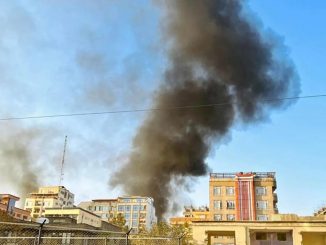
| Published May 10, 2025
Tensions between India and Pakistan have escalated sharply following a series of cross-border attacks and retaliatory strikes. In a significant development, Pakistan’s Defence Minister Khawaja Asif declared that Islamabad has “no option left other than full-blown war” in response to what he described as India’s increasingly aggressive posture over the past four days. Asif stated, “We don’t have any other options other than this… We have to pay them back in the same coin,” emphasizing the gravity of the situation.
The current crisis was triggered by a terrorist attack in Indian-administered Kashmir on April 22, which killed 26 civilians. In response, India launched “Operation Sindoor,” targeting alleged terrorist camps in Pakistan and Pakistan-administered Kashmir. Pakistan has denied involvement in the initial attack and has accused India of unprovoked aggression.
Subsequent days have seen both nations engaging in drone and missile strikes, with India claiming to have targeted military bases in Pakistan, and Pakistan asserting it shot down multiple Indian drones over its territory. Both sides report civilian and military casualties, and the situation remains volatile.
International leaders, including U.S. President Donald Trump and UK Prime Minister Sir Keir Starmer, have urged both countries to de-escalate and return to diplomatic dialogue. However, with both nations being nuclear-armed and historical adversaries, the risk of a broader conflict looms large.
The escalating tensions between India and Pakistan, marked by Pakistan’s Defense Minister Khawaja Asif warning of a “full-blown war,” have several critical implications:
1. Risk of Full-Scale Conflict:
-
Potential for War: With both nations being nuclear-armed, any further escalation could lead to a devastating conventional or even nuclear conflict.
-
Military Mobilization: Both sides may increase troop deployments along their borders, leading to heightened regional instability.
2. Humanitarian Crisis:
-
Civilian Casualties: Ongoing cross-border attacks already involve civilian areas, risking mass casualties if conflict intensifies.
-
Refugee Crisis: Residents near the border could be forced to flee, creating an urgent need for humanitarian assistance.
3. Economic Consequences:
-
Regional Economic Disruption: Trade between India and Pakistan, already limited, could be completely severed, affecting businesses and livelihoods.
-
Global Markets Impact: Rising tensions could lead to volatility in global financial markets, especially in South Asia.
4. Diplomatic Fallout:
-
International Pressure for Peace: Countries like the U.S., UK, China, and Russia may intervene diplomatically to prevent a full-scale war.
-
Strain on Global Alliances: Pakistan’s ties with China and India’s partnerships with the U.S. and Russia may complicate diplomatic efforts.
5. Nuclear Threat Awareness:
-
Global Concern over Nuclear Conflict: The threat of two nuclear-armed states going to war will heighten global anxiety over nuclear security and proliferation.
-
Potential Arms Race: The crisis may trigger further military modernization in South Asia.
Overall Takeaway
The escalating tensions between nuclear-armed India and Pakistan, fueled by cross-border attacks and war threats from Pakistan’s Defense Minister Khawaja Asif, present a severe risk of a full-scale conflict with catastrophic regional and global consequences, underscoring the urgent need for diplomatic intervention.
SOURCE: FIRSTPOST – ‘No option left other than full blown war’, says Pakistan’s Khawaja Asif amid escalating tensions with India
AL JAZEERA – Pakistan says no de-escalation with India amid attacks
MONEY CONTROL – ‘No option other than full-blown war with India’: Pakistan minister Khawaja Asif





Be the first to comment